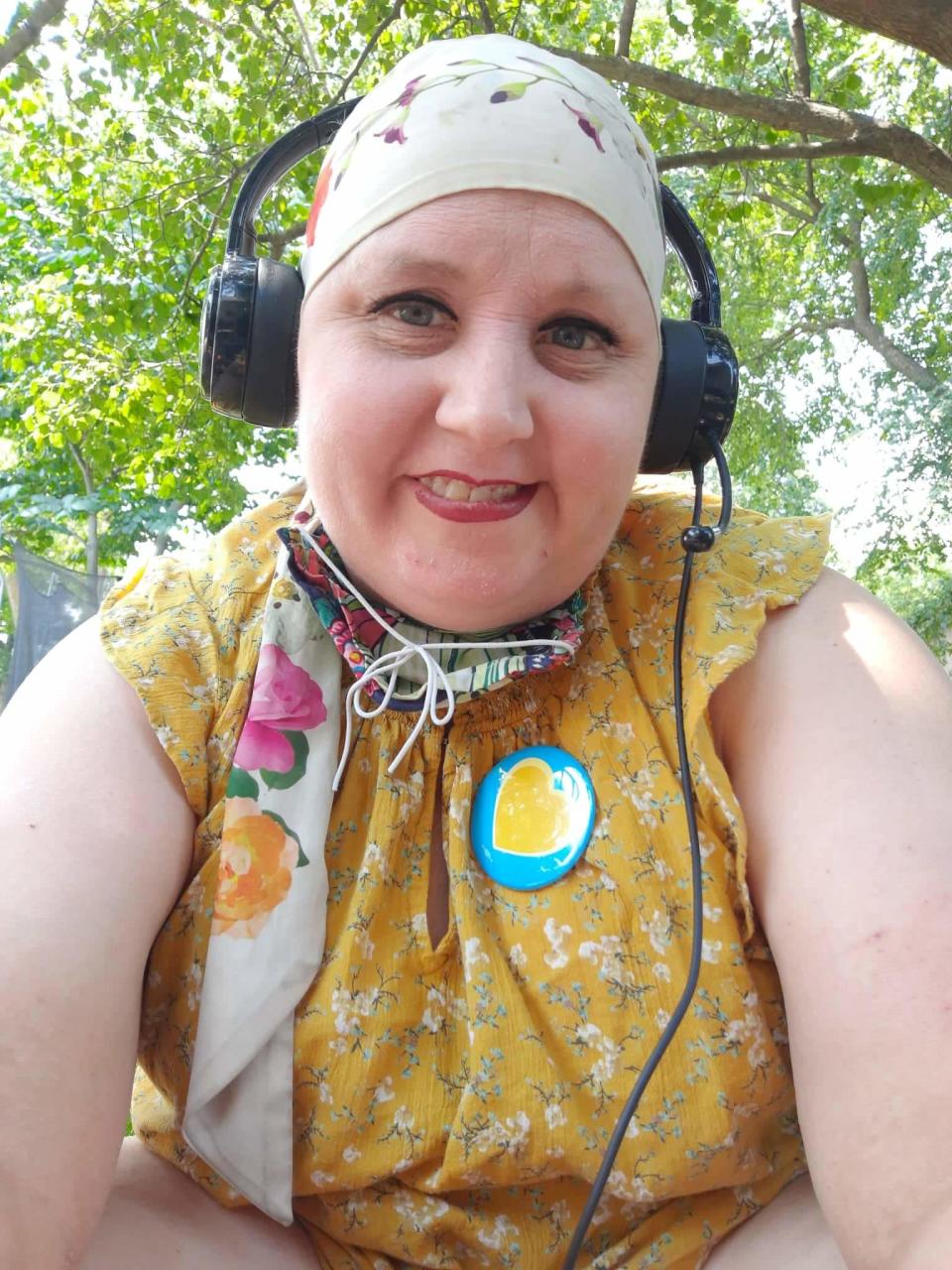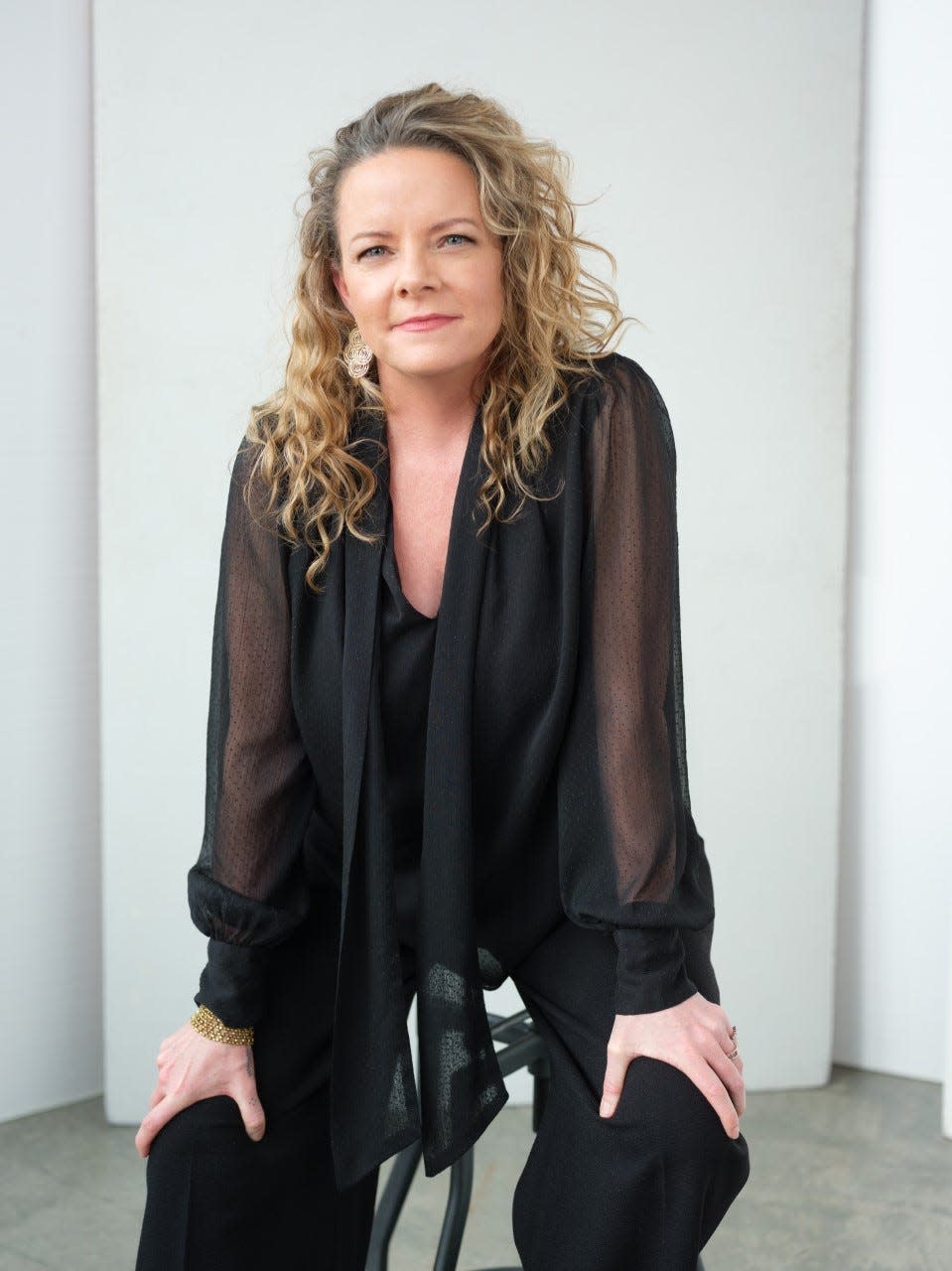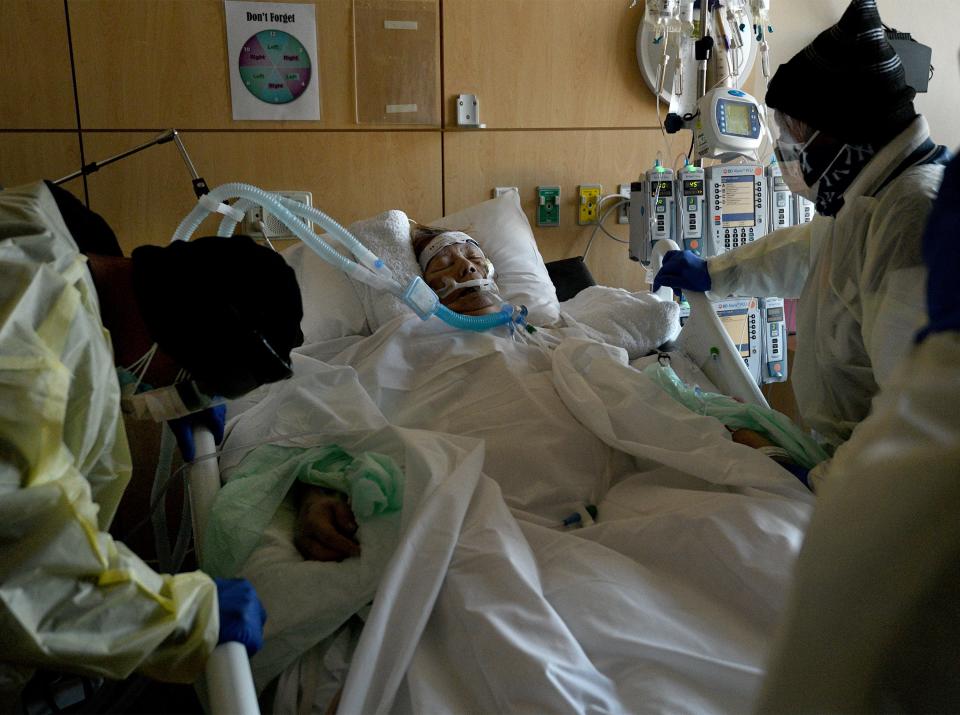2020 was awful. 2021 wasn't much better. What's lurking around the corner in 2022?
This New Year's Eve, as you take a cup of kindness to your lips and hum a stanza of "Auld Lang Syne" – because who really knows the words, right? – it may be propitious to take stock not just of the year gone by, but the one before and the one to come.
We all know 2020 was, in the words of an eminent psychologist, “a garbage fire of a year.”
We hoped, maybe even expected, 2021 would be better. And, now that it wasn’t, we have to wonder about 2022.
This isn’t just about COVID-19 shutting down a nation and fomenting political havoc over masks and vaccines while taking more than 816,000 American lives so far. In 2020, cop killings and racial injustice triggered mass protests and riots. Online conspiracy theories and claims of election fraud tore apart families as well as a nation.
Not to mention the arrival of murder hornets, dissension in the royal family and domination of "The Bachelor" by a guy named Pete the Pilot.
Yet, when experts evaluate the most terrible annals of all time, they say, 2020 was only a humble contender.

Late last year, the folks at the Bloom self-therapy app surveyed 28 historians about the world's "most stressful year ever." No. 1 on the list was 1348 A.D., when bubonic plague (the Black Death) ravaged our planet, eventually killing up to 200 million people.
The peak of the Holocaust in 1944, according to the Bloom survey, came in second. 2020 came in sixth, just behind the sacking of Rome by barbarians.
Still, 2020 year was so inglorious that, as it ended, Time magazine spurned historians with a cover headline declaring: “The Worst Year Ever.”
The 'Year of the Ox' got gored
As last Dec. 31 clocked out, many hoped the new year would be brighter.
On a Chinese calendar, 2021 was the Year of the Ox, known for strength and dependability.
Vaccines and maybe a cure would wind down the pandemic. Masking would end.
Schools, restaurants, gyms, churches and workplaces would reopen.
With no presidential election, partisan politics would ease. Congress could be less crazy, if not more effective.
Some wishes were accompanied by forecasts, including a list published by Vox on Jan. 5. The first prediction, with a 70% probability: “Trump will uneventfully leave office." A day later, Trump supporters laid siege to the halls of democracy.

In the ensuing months, COVID-19 variants morphed, escalating the pandemic culture war. Congress went into a sort of rigor mortis. Record wildfires and killer tornadoes swept the land. The justice system produced mixed results in race-related slayings.
Daniel Horowitz, a professor emeritus of American studies and history at Smith College in Massachusetts, said he recently browsed through forecasts for 2021, finding what he expected: "They didn't come true. It shows how difficult predictions are."
By January of this year, satisfaction with the direction of the United States was at its second-lowest point in four decades, according to a Gallup poll.
Entrepreneurs revived a marketing gimmick for Christmas ornaments, simply changing one numeral: “2021 sucked!”
Jeremy Young, a spokesman for the American Historical Association and a specialist in emotional experience, political culture and social movements, said wishful thinking may be natural, but anticipating a good year on the heels of catastrophe is a setup for disappointment.
Wars, plagues, famines, political calamities, economic crashes – nearly all catastrophes have long-term residual effects, Young said. “So, you’re not going to be able to turn that page quickly or cleanly. Nothing’s going to live up to lofty expectations.”
Balancing hope with 'the horrors to come'
It is one thing to talk about tough times, another to live them.
Two years ago, Amanda Finley couldn’t find work as an archaeologist. The Kansas City, Missouri, woman, who had joint custody of her 7-year-old son, Sam, was getting by as a food deliverer until COVID-19 got her in February 2020.
Finley, who has asthma, was home-bound for months. Her cough got so bad, she recalled, “It felt like something was going to rip. … At night I’d think, ‘Please let me wake up in the morning.’”

She became what’s known as a long-hauler – someone who gets sick with COVID-19 and develops chronic symptoms. Over time, she ran out of money, lost her lease, could no longer care for Sam and became homeless.
As she bounced from friends' basements to campgrounds, Finley said, she created a "COVID-19 Long-Haulers" page on Facebook, expecting to share experiences and ideas with a few kindred souls.
The page became a meeting place for thousands of followers, and as 2020 ended Finley was filled with hope. Folks were helping one another. Vaccines were coming out, promising a downturn in deaths and infections.
She told a friend that 2021 would be great, adding, "I'm going to be a force."
Then the delta variant broke out. In May, Finley's sickness worsened, with dizziness and fatigue. Her hometown was wracked by the coronavirus. A long-hauler buddy in Texas died, she said, "because he couldn't scrape together $60 for a few doses of medication."
"I went into a very dark area of grief and rage," Finley said. "I've lost so many friends."
Over time, long-haulers pulled her out of it. Fighting for them renewed her spirit. Today, thanks to their generosity, she's on the brink of getting a home for the new year.
"If I can do all this out of a tent in the woods, on my phone, what can I do when I'm housed?" Finley asked. "In some ways I'm more optimistic. But, in other ways I'm bracing myself for horrors to come."
The end of the world as we know it?
Nostradamus, a French dude, tried to predict the future in verse some 450 years ago. For 2022 he prophesied that "a great fire will fall from the sky" – interpreted by some soothsayers to mean an asteroid shower will destroy Earth.
Which brings us back to the dilemma: How should we plan for tomorrow?
Kate Sweeny, the psychologist who compared 2020 to a garbage fire, said optimism and pessimism are tricky elements of the human condition.
A bright outlook reduces stress and motivates individuals to bounce back when things go bad, though blind optimism – think gambling addicts – can lead to disaster. Pessimism softens disappointment, Sweeny said, but it could translate into debilitating stress.
Sweeny, who oversees the Life Events Lab at the University of California, Riverside, said the healthiest approach may be a realistic balance of positive and negative outlooks.
Her research on law students found that most are optimistic immediately after taking the bar exam. Shortly before test results come out, they turn negative and fearful, she said.
Those who fail have girded for misery; those who pass experience greater joy. "It's kind of a can't-lose situation if you time it right," Sweeny said.
How to cope by imagining 'future fictions'
Humans have always thought ahead. High school kids plot out colleges and careers. Elderly workers plan for retirement.
What's often missing, says Cynthia Selin, an associate professor at Arizona State University's School for the Future of Innovation in Society, is a systematic and scientific approach.

In her Futures Thinking and Strategy class, students conduct research while imagining a range of scenarios and optimal moves. They may study coffee production in Brazil or food banks in Phoenix, devising “fictions” and brainstorming how to deal with complications.
Such exercises have a dual advantage, reducing anxiety as they increase the odds of good outcomes.
No one knew COVID-19 was coming, Selin said, so it disrupted all the models. But as unknowns occur, new scenarios are built to analyze the interplay of events, economics, politics, culture, technology and other facets of life.
“We are all natural planners, but we don’t always take time to do it,” Selin said. “What we do in the present is shaped by stories we tell about the future.”
2022: A year of infinite possibilities
Arthur Shostak, a professor emeritus of sociology at Drexel University in Philadelphia, said homo sapiens thrive because of an evolutionary talent: adaptation.
"We are dynamic, thinking animals, and we are endlessly reasoning," he said. "And that's our salvation."
Planning ahead feeds off of uncertainty, rather than eliminating it, he said. One moment, Shostak suggested COVID-19 will soon dissipate. The next, he mentioned viral mutations and said, "I lose sleep over that more than I do war."

Climate change also keeps the professor up at night because it could trigger long-term upheaval like famines, migrations and military conflicts. "My 2-year-old will have grandchildren living under global warming," he said.
Shostak said extreme events – or extreme years – may be overstated by history: "Life is not about exclamation points. It's about sentences that end in question marks and, in some cases, periods."
Herbert Gans, an author and former president of the American Sociological Association who escaped Nazi Germany, has long advocated studies of – not predictions for – the future.
"Nobody knows what'll happen next," the 94-year-old stressed in an interview. "And I'm not sure it's worth speculating."
Gans promotes empirical forecasting. He cited a highway along the Hudson River near his New York home to make his point. If climate change continues unchecked, evidence suggests the pavement will be flooded in a matter of years. That type of analysis is scientific, with dramatic societal consequences.
Horowitz, who was born in 1938, taught U.S. history for 30 years but does not recall a single lesson about the Spanish flu. By contrast, he sees profound implications for 2022 and beyond in America’s widening chasm over issues such as racism, immigration, LGBTQ rights and climate.

"I can’t imagine the end of polarization in the near future," he said. "I don’t think it’s just a blip.”
Using scenario exercises, one can imagine infinite 2022s with varying degrees of likelihood.
Venus is on course to reach a point just 24.8 million miles from Earth next year, the closest in its trajectory. The Winter Olympics are scheduled in China (without U.S. diplomats). Unless an asteroid fulfills Nostradamus' prediction, the world population is expected to hit 8 billion.
And what will become of so many people?
Horowitz spoke of a great continuum, with perpetual changes for good and ill linking yesterday, today and tomorrow. The coronavirus breaks out, subsides amid vaccines and resurges with new variants. Perhaps it will vanish with a cure. Or not.
“The glass seems half-full in one moment and the next it seems empty,” Horowitz said. “We’ve all been pulled and tugged. … I’m not sure what the old normal was, or what the future will be.”
Looking back at 2021: See a photo from every day of a life‑changing year
This article originally appeared on USA TODAY: Predictions of a brighter 2021 didn't come true. Will 2022 be better?

 Yahoo Sports
Yahoo Sports 